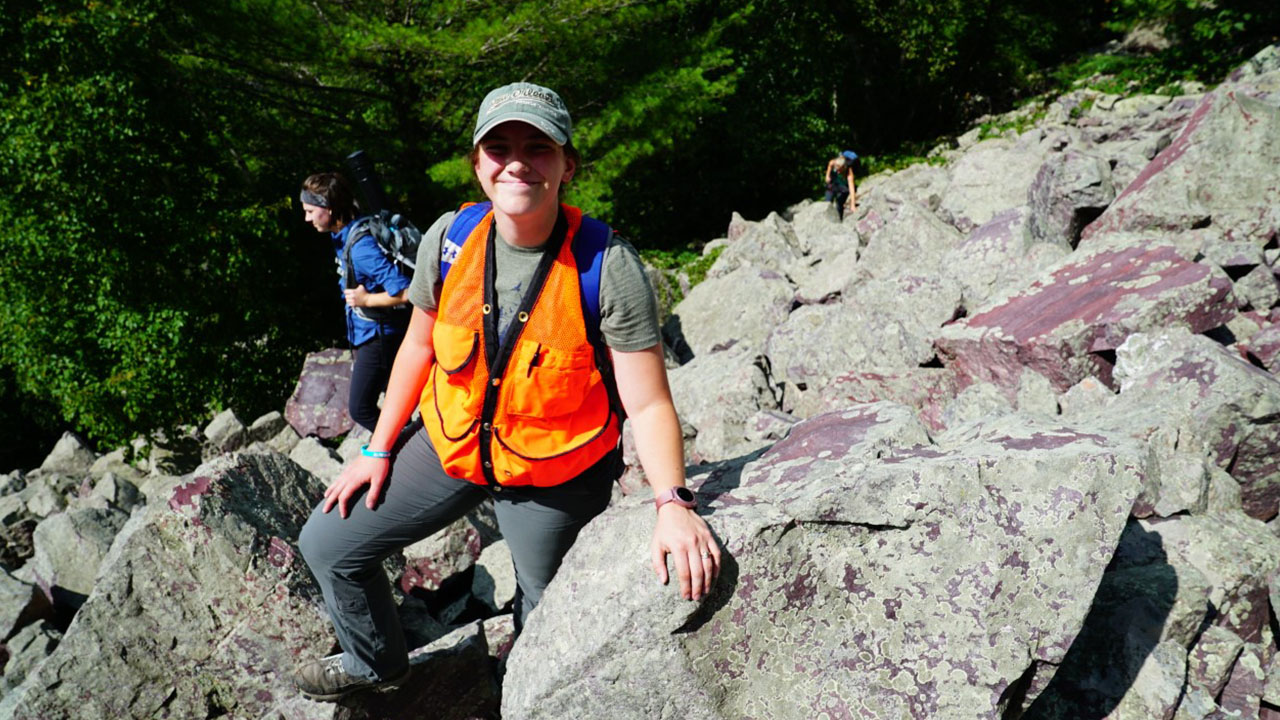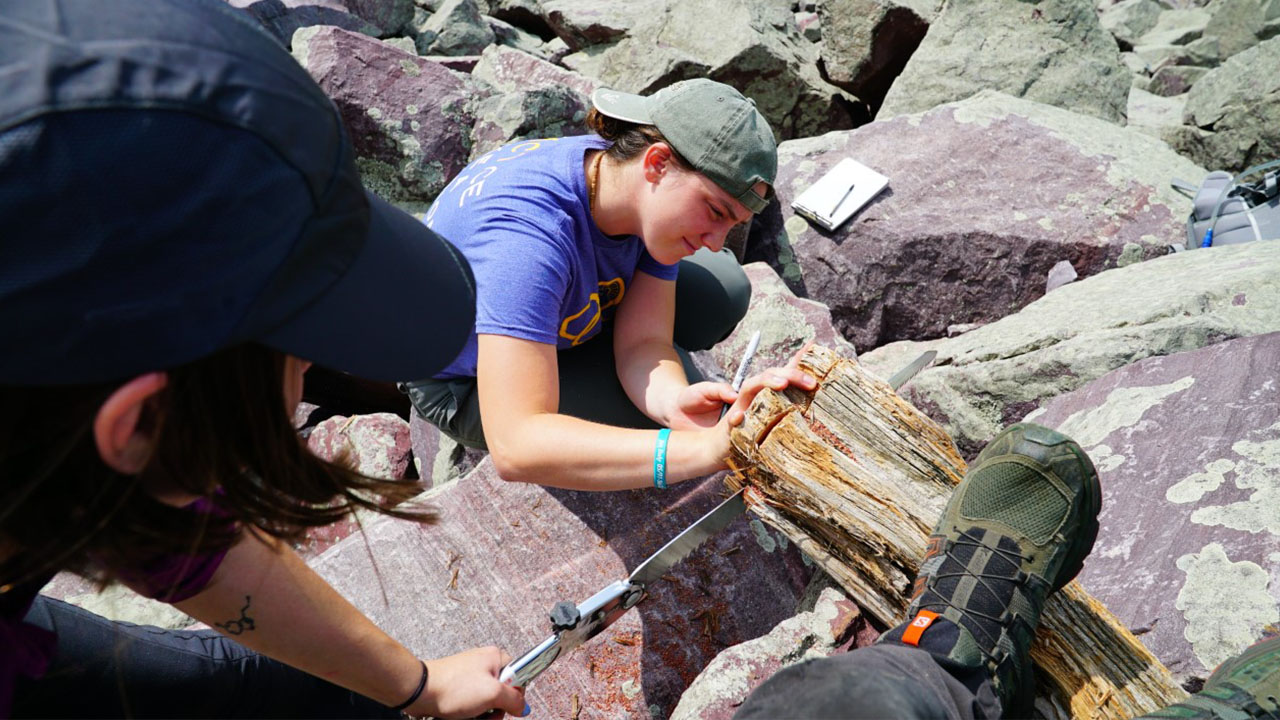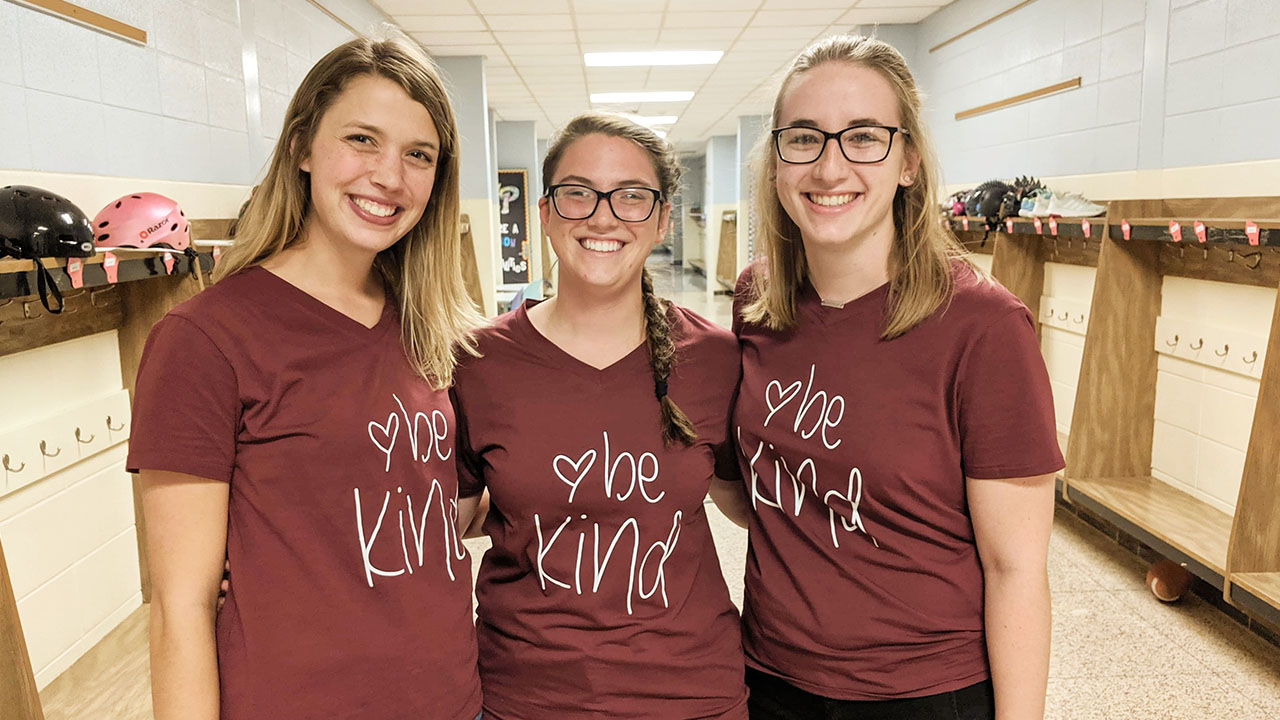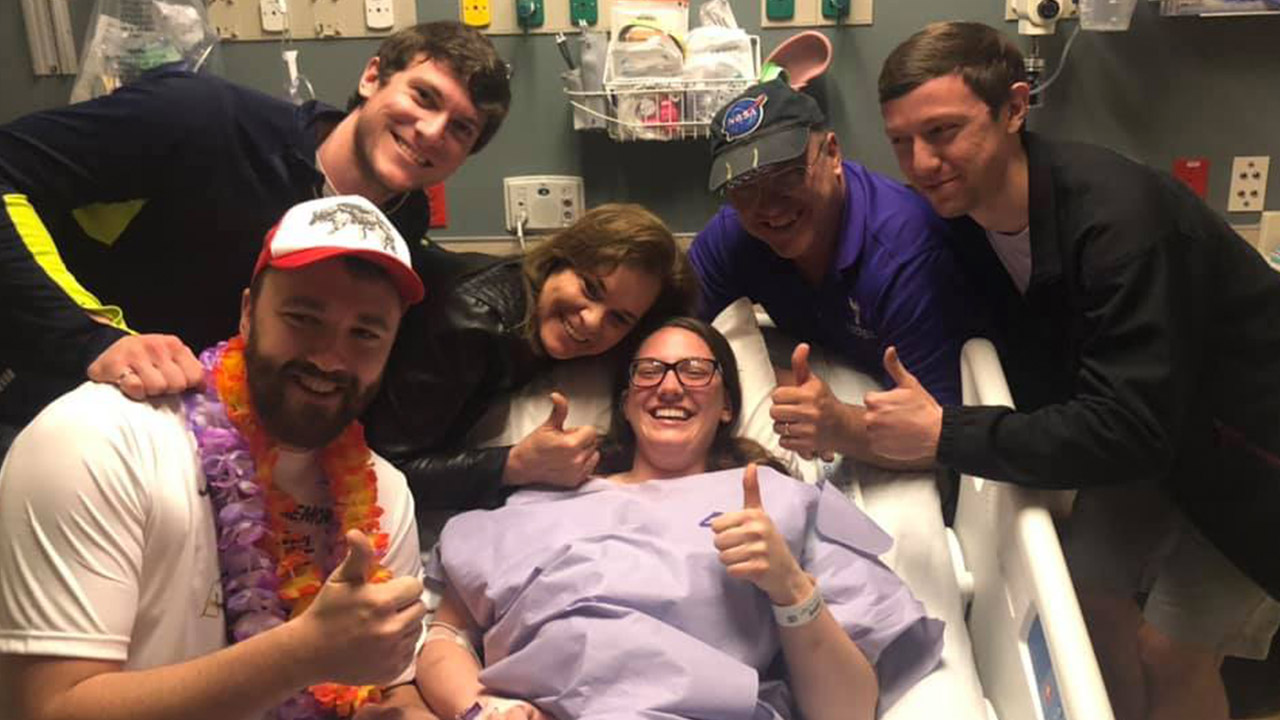



“My dream, ever since I was little, was to be a teacher. I love connecting with students, fostering their passions and letting them know they matter and have something to offer.”
These are the words of Elissa (Bahr) Granger, a senior middle level education major with a minor in natural science at the University of Wisconsin-Platteville. This December, the Platteville native will be one step closer to making her dream come true when she walks across the stage at commencement, accepts her diploma and begins applying for teaching positions in Platteville and the surrounding area.
Over the past 18 months, Granger has faced and overcome several extremely difficult life challenges. In June 2018, her brother Jon, 27, was killed in a tragic helicopter accident. Then, less than two months later, as she was still adjusting emotionally to the painful loss of her brother, she became very ill physically. She experienced a variety of symptoms, including nausea, dizziness, hearing loss and issues with her vision and walking.
Nine months later, she was still suffering with the symptoms – and no one had been able to diagnose their cause. Finally, in May 2019, when she began to experience facial numbness, she asked her physician for an MRI. Results of the test showed the cause of her symptoms: a brain tumor had grown around all 12 of her cranial nerves and was pressing against her brainstem. Her physicians told her that the tumor needed to be removed by a neurosurgeon as soon as possible.
Surgery at UW Health, Madison
On May 8, Granger was transferred to University Hospital in Madison, Wisconsin. Six days later, Dr. Mustafa Baskaya, a neurosurgeon at UW Health, removed her brain tumor in a nine-hour surgery. While doctors expected Granger to remain in the hospital’s Neuroscience Intensive Care Unit for three to five days then spend four to five days in the general hospital for recovery, she spent only 24 hours in the Intensive Care Unit, then two additional days in the general hospital.
For the remainder of the summer, Granger received physical, occupational and speech therapies at Southwest Health in Platteville to make sure her brain was still functioning correctly.
“I have faced a variety of challenges leading up to today, but this past year and a half have probably been the hardest times of my life,” she said.
Recovery
“My recovery went very well, and I have to share how good God was throughout the whole process,” said Granger. “Most people might be worried or scared if they found out they had a tumor and needed brain surgery to remove it, but I felt relief and comfort. I finally had answers for the symptoms I was feeling and I knew that God had equipped my surgeons, technicians and nurses with the technology and materials they needed to do a great job.”
“I am so thankful for the advances in science we have today,” added Granger. “I have always been interested in science, and I am so close to becoming a science teacher. This experience has reinforced my love and passion for science, and I cannot wait to teach and inspire my students.”
Granger said the love and support she received from her family and her husband, whom she married in March 2018, was critical to her recovery.
“As I think back to everything that happened during this time, I can’t thank my family enough,” she said. “From my aunt leaving work as soon as she found out to come and interpret my MRI to my parents, my husband and me in laymen’s terms, to my brother flying home from Maryland to surprise me and be there for my surgery, to my cousin letting my husband and me stay at his place the night before due to an early surgery time, to all of the family members who came to sit in a waiting room during my nine-hour surgery, to my husband never leaving my bedside in case I needed anything after surgery, to all those who came to visit me in the hospital and at home, to my parents welcoming my husband and me to stay in their living room for a week since I couldn’t use stairs, to all of the encouraging messages and cards I received. Like, wow. I didn’t even include it all. My family is simply amazing.”
She said her professors were there for her too, especially Dr. Leigh Monhardt, professor of education; Dr. Joseph Wu, associate professor of chemistry; Dr. Chris Underwood, associate professor of geography and chair of the Department of Geography; and Dr. Evan Larson, associate professor of geography.
“There were many other professors who showed me support, but these four professors were those I worked most closely with during the semester, and who showed so much grace on final assignments and exams after my diagnosis,” said Granger.
“I have had the privilege of working with Elissa as her faculty advisor, professor of several of her courses and currently her student teaching advisor,” said Monhardt. “In every one of these experiences, Elissa demonstrated that she is very knowledgeable of innovations in teaching, very articulate and extremely hardworking. Elissa not only had the skills that make her an outstanding teacher, but she is also a very fine person who will be a credit to the profession.”
In summer 2018, right before she got sick, Granger worked closely with Underwood and Larson on tree-ring research in the university’s Tree-Ring, Earth, and Environmental Sciences Laboratory. Despite her symptoms, in April 2019, Granger was feeling well enough to help present that research at the American Association of Geographers annual conference in Washington, D.C. She said she will never forget this experience as well as the experience she had the previous year, when she presented at the AAG conference in New Orleans, Louisiana.
“Despite my nausea, dizziness and the inability to walk in a straight line, I had another amazing experience at AAG 2019,” said Granger. “Sometimes, it was hard to concentrate during talks because my eyes were not able to focus on the visuals in the presentation. Presenting my research also had its difficulties because I struggled to stand and walk around. However, my co-authors had my back during our presentation and gave me a break when I needed it. The AAG Conference is such a great opportunity to network and learn about what scientists are researching around the world. I am grateful for my experience in the TREES Lab and at these conferences.”
“Elissa was a key contributor to a major inter-campus collaboration that produced an 850-year record of Wisconsin climate from the growth rings of eastern redcedar trees,” said Larson. “These were tricky trees and the project was no easy task. She brought a joy and playfulness into the TREES Lab that would lift the entire place. Her generosity of spirit is incredible. She lifted up everyone around her while going through more hardship that most people can imagine. Her strength and resiliency are simply awe-inspiring. Elissa is a brilliant person and her students will be lucky to have her as a teacher.”
Looking ahead
Granger is currently student teaching sixth-grade students at Mineral Point (Wisconsin) Elementary School. Prior, she taught third-grade students at the school.
As a grades 1-8 education major, Granger has had numerous opportunities to gain invaluable teaching experiences at schools in and surrounding Platteville. In addition to teaching third and sixth grades at Mineral Point Elementary School, she taught first, third and fourth grades at Platteville schools and fifth grade at Lancaster Elementary School.
“I appreciate each of these experiences as they are all unique and I learn so much from each one,” she said. “Since I grew up in Platteville, I feel very connected to this area and the communities that surround me. As I continue to have more experience in different school districts, I learn what makes each one unique and how the staff members work together to meet the needs of their students. I love having these opportunities to work closely with other teachers as well as students.”
As she looks to the future, Granger said that each day, it is her faith that inspires her.
“I know that I have a calling and a purpose, and I know that I don’t have just one,” she said. “I am obviously called to be a teacher, but I believe God has also called me to be creative, artistic, inclusive and kind. I try to live my life by those callings and do what I can to impact others in a positive way. Number one, I want children and adults to know they matter and are a piece to the puzzle of life. Number two, I want to inspire kids about science and what it can do. Scientific advances are what saved my life, after all.”